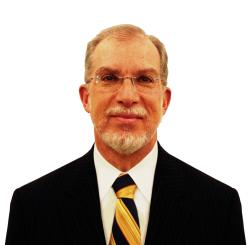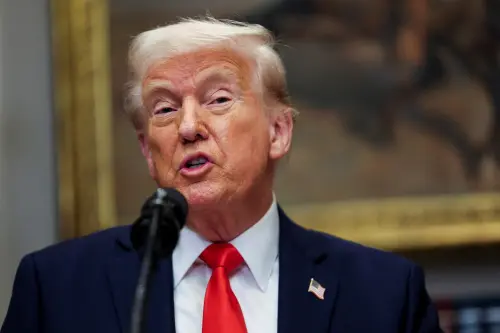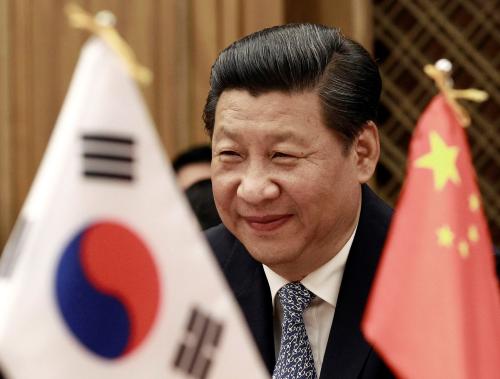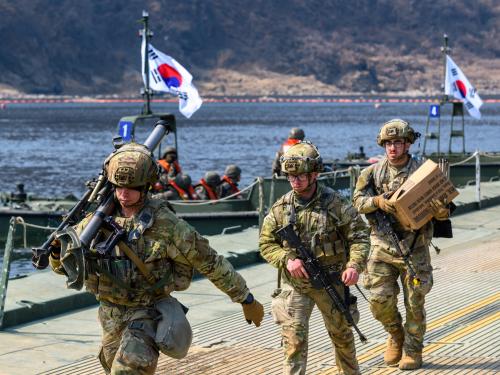On April 4, 2025, South Korea’s Constitutional Court unanimously upheld the impeachment of President Yoon Suk Yeol, dismissing Yoon from office and ending a tumultuous period after his short-lived martial law declaration. With a snap presidential election set for June 3, South Korean voters have a crucial choice to make amid an unpredictable geopolitical environment, a flagging economy, deep political polarization, and the return of U.S. President Donald Trump. Senior Research Assistant Hanna Foreman met with Andrew Yeo, senior fellow and SK-Korea Foundation chair in Korea studies, and Evans J.R. Revere, nonresident senior fellow, to review the situation in Seoul.
South Korea's democracy and reputation
Hanna Foreman:
What does the fact that South Korea has experienced two presidential impeachments in eight years reveal about the health of South Korean democracy? How does the recent crisis impact Seoul’s global reputation?
Andrew Yeo:
South Korea’s recent political crisis reveals the strength of its political institutions but also an underlying weakness of democratic norms, such as forbearance and mutual tolerance for political opponents.
South Koreans managed to overcome two impeachment crises in the past decade by adhering to democratic rules and procedures. The National Assembly and the Constitutional Court respectively voted and upheld the decisions to impeach Presidents Park Geun-hye in 2017 and Yoon in 2025. Both the ruling and opposition political parties agreed to hold snap elections 60 days after the court’s ruling as outlined in the constitution. Meanwhile, progressive and conservative civil society groups demonstrated in a largely peaceful, orderly manner. Despite real concerns about a prolonged constitutional crisis and even political violence, South Koreans (and their political institutions) demonstrated a great degree of democratic resilience. The global media praised South Korea for this positive outcome.
But to be clear, two presidential impeachment processes in eight years is not a sign of a healthy democracy. As political scientist Aram Hur and I have argued, a particular form of partisan polarization has intensified in South Korea, creating a strong “us vs. them” dynamic that weakens democracy. When political parties are driven by competing nationalist goals, the end game is not representation but the political elimination of the opposition. Unfortunately, deepening polarization has undermined important democratic norms of tolerance and forbearance which serve as informal guardrails to democracy.
Three storylines to watch
Hanna Foreman:
With the snap election scheduled for June 3, what are three key storylines to watch?
Andrew Yeo:
First, who wins the nomination for the ruling People Power Party (PPP) will be crucial. A traditional conservative candidate, such as Labor Minister Kim Moon-soo, can mobilize the party base and has a better chance of winning his party’s primary election. However, when matched against the Democratic Party of Korea’s (DPK) former chairman and frontrunner, Lee Jae-myung, in a general election, a more moderate candidate that can capture the large swath of undecided voters may have a better shot of defeating Lee. Former PPP leader Han Dong-hoon might fit that bill, but his rejection of martial law and support for Yoon’s impeachment has antagonized the former president’s supporters and the party base.
Second, how independents and moderates in the PPP and DPK will vote is key. In an early April 2025 Gallup poll, 41% of South Koreans supported the DPK, 35% supported the PPP, and 17% identified as independents. Additionally, among political moderates, 45% supported the DPK, 23% supported the PPP, and 23% did not support a specific party. Given the relatively large number of independents and/or undecided voters, the candidate who can win over political moderates and attract independent, younger voters will likely come out on top.
Third, although foreign policy is not the top issue in this election, how each candidate addresses the U.S.-South Korea alliance should be closely observed. The threat of U.S. tariffs and renewed calls in South Korea to develop nuclear weapons may test the alliance. Although strong bipartisan support exists in South Korea for the alliance, it remains to be seen if a pro-U.S. alliance narrative begins to shift, particularly from the progressive DPK camp, should U.S. tariffs and reduced U.S. security commitments on the Korean Peninsula weaken public perceptions of the United States.
Evans J.R. Revere:
A key electoral focus will be whether the DPK can achieve a strong mandate if it wins. A decisive DPK victory, coupled with its current strong parliamentary majority, would enable the party to carry out a major shift in the Republic of Korea’s (ROK) domestic and foreign policy, including in its relations with the United States. Under such circumstances, however, differences between the United States and South Korea’s progressives on relations with China, North Korea, Russia, Japan, and trade could signal a period of turbulence in the U.S.-ROK alliance.
Alternatively, a strong showing by a defeated PPP would signal popular misgivings about Korea’s progressives. A PPP win (albeit unlikely) would be a stunning setback for progressives and allow a degree of policy continuity in U.S.-ROK relations. However, a narrow victory by either party is likely to lead to continuing political divisiveness in South Korea.
Another focus will be whether relations with the United States become an election issue. The Trump administration’s trade, burden sharing, and other demands on South Korea could make bilateral ties an election issue. While the opposition DPK has been careful not to alienate Washington, some progressives could see an advantage in campaigning against U.S. “pressure.”
How should Washington engage?
Hanna Foreman:
Drawing from your career in the U.S. Foreign Service, Evans, how would you advise Washington to engage South Korea while it is experiencing political upheaval? What lessons have you learned from past experiences?
Evans J.R. Revere:
If asked for advice, I would urge reconsideration of the path the administration is taking with longtime allies and partners.
A new paradigm has arisen in Washington’s approach to alliances. A tough, confrontational posture seems to be the order of the day. Trump believes alliances are a burden and has charged that allies are “ripping off” the United States. Demands that allies “pay” for U.S. “protection” ignore the significant contributions that countries like South Korea make to our common defense and the value-added they bring to dealing with shared security challenges.
In recent weeks, we have witnessed major setbacks in transatlantic and U.S.-Canada relations, the betrayal of Ukraine, and the private disdain that senior U.S. officials have expressed toward some of America’s NATO allies. Seoul is not yet in the crosshairs, but the depth of alliance skepticism in Washington tells us it may only be a matter of time before it is.
Washington’s expressed scorn for allies could erode trust and friendship with the ROK, just as it already has with NATO. And the administration’s approach is particularly ill-advised as Seoul moves toward a major political shift in the upcoming election. Now is the time for caution and cooperation, not confrontation, in U.S.-ROK ties.
South Korea's future foreign policy
Hanna Foreman:
Where do you both see the future direction of South Korea’s foreign policy, especially relations with the United States, North Korea, Japan, and China, going under a progressive or conservative government?
Andrew Yeo:
The DPK’s Lee Jae-myung has pitched himself as a foreign policy pragmatist. Although Lee has declared support for the U.S.-South Korea alliance and improved Korea-Japan relations, South Korea’s foreign policy may still unfold differently under progressive and conservative leadership, particularly on policy toward China and North Korea.
Whereas the PPP base has become staunchly anti-China, the DPK has taken a more circumspect approach to China. Even if prodded by Washington, a DPK-led government may be less inclined to confront Beijing on issues that touch on any of China’s core interests, including conflict in the Taiwan Strait and maritime disputes in the South China Sea. In contrast, a PPP leader may try to expand Seoul’s strategic engagement in the Indo-Pacific by working more closely with the United States in countering Chinese influence in the region.
Turning to North Korea, both political camps remain concerned that Trump might engage Kim Jong Un without consulting Seoul or disregard its security concerns. For South Korean conservative hawks, a return to U.S.-North Korea diplomatic engagement will be a tough sell absent firm security guarantees for South Korea and Kim’s commitment to denuclearization. In contrast, the progressive camp’s proclivity for peaceful engagement with North Korea may complement Trump’s desire to reengage Kim. Paradoxically, whereas a PPP leader might potentially clash with Trump on North Korea issues, a DPK leader may encourage Trump to reach out to Kim.
Evans J.R. Revere:
A conservative victory would put in place a leadership well-disposed toward the United States and the alliance, and generally sympathetic to U.S. positions on China, Russia, Ukraine, and Japan. But even a conservative government in Seoul would likely find U.S. burden-sharing demands excessive and the U.S. position on trade and tariffs difficult to accept. Nevertheless, a conservative government would seek harmonious outcomes with Washington.
The more likely electoral outcome is a win by the progressive DPK. Previous center-left governments have often been characterized by a deferential approach to China, troubled ties with Japan, upticks in anti-American sentiment, reluctance to pursue certain alliance initiatives (such as THAAD deployment), and a concessionary approach toward North Korea. Many of these issues have proved problematic over the years in the U.S.-ROK relationship.
The DPK’s leadership, including its front-running leader, Lee, has been cautious in recent public comments as it seeks to avoid anything that might sour ties with Washington or alienate voters. But intraparty sentiment on North Korea and Japan is strong, as is a reluctance to be drawn into a more confrontational approach to China. We can also expect a progressive government to push back hard on trade and tariff issues. We should not underestimate the degree to which U.S.-ROK ties will become troubled in the event of a DPK win.
The Brookings Institution is committed to quality, independence, and impact.
We are supported by a diverse array of funders. In line with our values and policies, each Brookings publication represents the sole views of its author(s).







Commentary
Will South Korean democracy pass its next test?
April 28, 2025